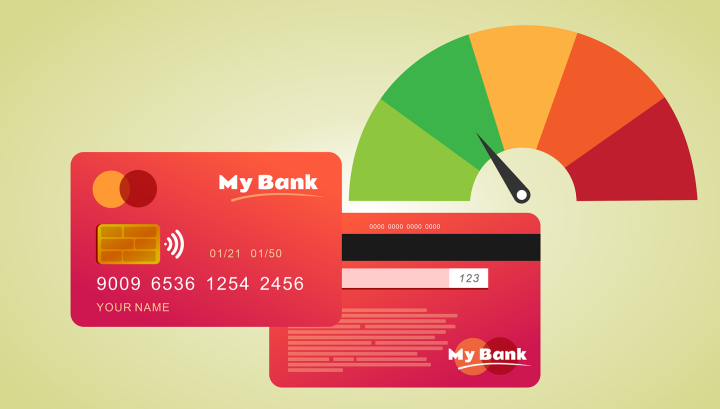ADULTING (SORT OF)
How your financial decisions influence your credit score… and vice versa

TransUnion Africa’s Kriben Reddy explains the ins and outs of credit scoring.
Debt is often unavoidable. Today, it is unlikely that the average person can buy a house or a car with cash, and expecting to save up first might be unrealistic – life happens. Rather, individuals may need to rely on a bank or financial institution to make these purchases, and banks need to know that they will get their return.
Service providers and financial institutions need to make sure that their clients can be trusted to continue paying for their products in the future. To evaluate this, a client’s credit score is taken into account.
“A good credit score is the foundation of a healthy financial lifestyle. It gives providers of goods and services a quick and easy overview of your general payment behaviour to allow them to measure their risk in giving you a product or credit facility,” Kriben Reddy, head of consumer at TransUnion Africa.
“If you have a good credit score, it will indicate a lower risk, and you might get a better interest rate or more favourable credit terms.”
Get to know your credit
A credit score is a three-digit number that indicates how a consumer spends their money, how they pay their bills and what kind of debt they may carry.
Various companies have different ranges of this value but the general principle is the same: the higher the score, the better. Also, most financial service providers will display levels or bands so that an individual can see exactly where their score falls and what the implications of this position are.
For example, a TransUnion Consumer Credit Score ranges from 0 to 999:
- Excellent: 767-999;
- Good: 681-766;
- Favourable: 614-680;
- Average: 583-613;
- Below average: 527-582;
- Unfavourable: 487-526; and
- Poor: 0-486.
“When you apply for credit such as a home loan or credit card, lenders use your credit profile to gauge your financial position and decide if they are willing to extend credit to you – sometimes on favourable terms. A healthy credit score holds many benefits and it’s up to you to build and maintain a positive credit profile,” Reddy explains.
The financial products that service providers look at include a wide range of products that all feature in a credit profile, such as credit cards, home loans, insurance contracts – this includes funeral policies, life cover and short-term insurance – and mobile and retail accounts.
How to build and improve your credit score
Since a credit score is a reflection of how well an individual is managing their finances and their debt, Reddy explains that the best-known way to build a positive credit profile is to use credit responsibly and to manage outgoing payments on time.
“Only borrow what you can afford and maintain any payments. It is better to have just one credit agreement that you maintain well than having multiple accounts which you fail to repay or default on,” he says.
The more a person can show that they have responsibly managed their money and their debt, the better their credit score, so naturally, this develops over time.
According to Reddy, the most important things to do to improve a credit score are:
- Manage your accounts. Make sure you pay your accounts in full every month if you have any. Partial payments can negatively affect your score and leave you playing catch-up with growing outstanding debt;
- Limit your amount of debt. Keep the use of your current credit facilities below 35% of your limit;
- Grow your credit history. Long-standing credit accounts that are consistently settled in full reflect positively on your repayment reliability. It also helps to maintain a healthy mix of secured credit (home loans and vehicle finance) and unsecured credit (personal loans and credit cards); and
- Limit your enquiry activity. Don’t shop around for too much credit at the same time. Too many applications in a short time could raise a red flag to lenders about your current financial situation.
Reddy also notes that individuals are entitled to free credit reports – depending on their financial service provider – and he recommends that they take advantage of this.
“Check [the report] carefully for inaccuracies, like accounts that you don’t recognise or incorrect information about late payments. Disputing this kind of inaccurate information, and getting it removed from your credit report, can improve your credit health,” he says.
Read in Daily Maverick: How to build a realistic budget that works for, rather than against, you and your money
Managing credit without falling into debt
A healthy credit score depends on taking loans and paying off services, but debt can also be difficult to manage if you’re not careful. Reddy outlined some tips to help manage debt while building a better credit score:
- Start with a credit health check. Take the time to know your own financial health. Do you know what you currently owe your lenders? Have you pulled your credit report recently to see whether you have debts you are unaware of? Do you have any defaults or judgments against you that need sorting out?;
- Read the fine print. Many credit agreements offer the option of credit insurance, which ensures your debt is paid if you can’t pay due to job loss or illness. Meet the minimum monthly repayments, and if possible, pay off the debt faster. Missed or late payments are the biggest factor that affects your credit score negatively. DM/ML




















 Become an Insider
Become an Insider
Good day – what happens to a credit check if it shows erroneous information e.g. my credit check shows I have a registered bond over my property which is definitely not the case.
Is this serious?
Also how does one deal with a poor credit record as a result of identity theft and fraud?